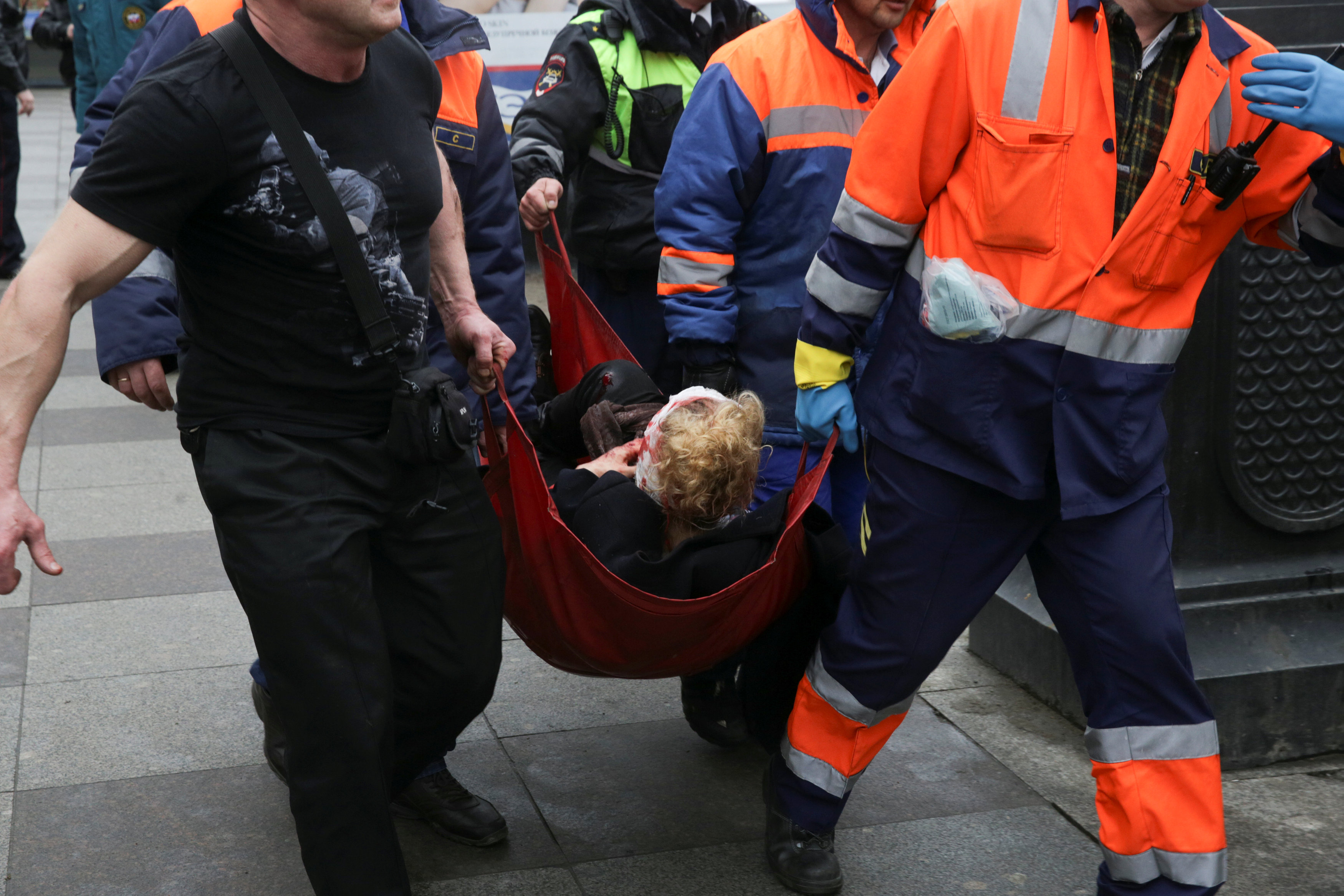
By Polina Nikolskaya and Hulkar Isamova
MOSCOW/JALAL-ABAD, Kyrgyzstan (Reuters) – The man Russian investigators say orchestrated a suicide bombing on the St Petersburg metro told a court on Tuesday he was an unwitting accomplice in the attack, in which 14 people were killed and scores injured.
Russian investigators said that before the April 3 attack, the suspected suicide bomber, Akbarzhon Jalilov, had spoken by telephone with Abror Azimov, who the investigators said was helping mastermind the attack from a Moscow suburb.
At a preliminary court hearing in Moscow, the suspect, Azimov, said he had participated in the preparation of the attack but only indirectly.
“I did not realize that I was helping with this act,” he said, referring to the April 3 blast. “I was being given instructions.” Dressed in a black jacket and checked shirt, he spoke from a metal cage in the courtroom.
Earlier in the court hearing, a state investigator told the court that Azimov had confessed to having taking part in preparations for the attack, but the suspect said he had not confessed to that.
Since the attack, Russian authorities have detained nine people suspected of involvement. All are originally from Central Asia, a region of five mainly Muslim states that border Afghanistan, Iran and China.
Abror Azimov is originally from the city of Jalal-Abad, in the Central Asian state of Kyrgyzstan. His wife said on Tuesday that Azimov and his brother, Akrom, had been working in a sushi restaurant in the Moscow region. He had been due to return home to Kyrgyzstan in April, but did not make the trip.
ISLAMIST TRAINING CAMP?
Her husband was “calm and well-adjusted”, the wife, her head covered by a scarf, told Reuters in Jalal-Abad.
She said his brother Akrom had returned home from Moscow because he was sick, adding that he had been taken from hospital for questioning by Kyrgyz state security.
Russia’s Ren TV broadcaster, citing law enforcement agencies, reported that Azimov, along with the St Petersburg suicide bomber, had attended a radical Islamist training camp. It did not say where the camp was located.
Azimov’s wife and another brother, Bilol, told Reuters he had traveled to Turkey but was only in transit there on his way home after an abortive attempt to find work in South Korea. The family, though Muslims, rarely went to the mosque, Bilol said.
No group has claimed responsibility for the attack, which happened on a day that Russian President Vladimir Putin was visiting St Petersburg, his native city.
If it is proven that the bombing was carried out by radical Islamists, that could pose a test for Putin’s policy of military intervention in Syria. The Islamic State group has threatened to take revenge for Russian air attacks on Syria by shedding blood on Russian soil.
(Reporting by Polina Nikolskaya; Writing by Christian Lowe; Editing by Vladimir Soldatkin and Gareth Jones)



